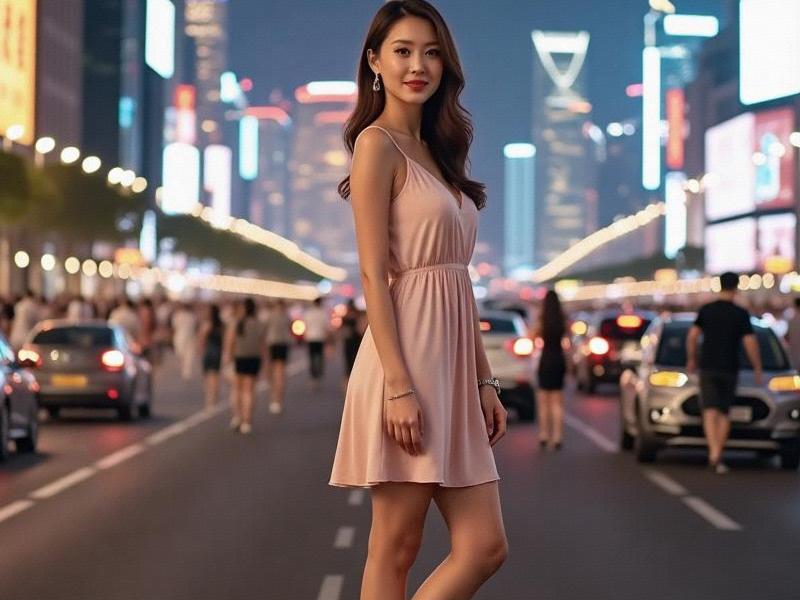The Shanghainese Woman: Where Tradition Meets Modernity in China's Global City
⏱ 2025-06-01 00:28 🔖 阿拉爱上海
📢0℃

Shanghai has long been celebrated for its sophisticated, fashion-forward women who embody the city's unique blend of Eastern traditions and Western influences. This comprehensive profile examines the multifaceted identity of Shanghainese women in the 2020s.
Historical Context
Shanghai women developed distinct characteristics through:
- Treaty port era (1842-1949) exposure to international cultures
- 1920s "Modern Girl" movement in Republican China
- Socialist egalitarian policies of Mao era
- Post-reform economic boom opportunities
Fashion and Beauty Trends
Contemporary Shanghainese style combines:
1. Traditional elements:
- Qipao revival among young professionals
上海龙凤千花1314 - Jade jewelry as cultural statement
2. Global influences:
- High fashion adoption from Paris/Milan
- K-beauty skincare routines
3. Local innovations:
- Emerging Chinese designer brands
- "Guochao" (national trend) movement
Career and Education
Shanghai leads China in female professional achievement:
- 62% of managerial positions held by women (national average 43%)
- Highest percentage of female STEM graduates
上海喝茶服务vx - Growing presence in finance/tech leadership
- Entrepreneurial boom in creative industries
Social and Family Dynamics
Modern Shanghainese women navigate:
- Later marriage age (average 29.3 vs national 27.9)
- Smaller family sizes (fertility rate 0.7)
- Increased divorce rates (39% of marriages)
- Multigenerational childcare solutions
Cultural Icons and Representation
Notable figures shaping the image:
上海品茶网 - Actress/influencer Fan Bingbing
- Olympic swimmer Liu Xiang
- Tech entrepreneur Peggy Yu
- Contemporary artist Yang Fudong
Challenges and Opportunities
Key issues facing Shanghai women:
- Work-life balance pressures
- Persistent gender pay gap (18%)
- Aging population concerns
- Rising living costs
The Shanghainese woman today represents both the remarkable progress and ongoing challenges of Chinese urban women, serving as a fascinating case study of globalization's impact on gender roles in Asia.
Shanghai's Beauty: A Blend of Tradition and ModernityQuantum Bund: Shanghai's Chrono-Urban Matrix Rewriting Civilization's Source Code"The Yangtze Delta Experiment: How Shanghai and Its Satellite Cities Are Rewriting Urbanization Rules"The Evolution of Shanghai's Nightlife: How Entertainment Venues Are Redefining Urban LeisureShanghai's Nightlife Revolution: How Entertainment Clubs Are Shaping Urban Culture in 2025Neon Cheongsams: How Shanghai's Women Are Rewriting the Rules of Asian FemininityShanghai Beauties: A Journey Through the City's Elegant CharmShanghai and Its Surrounding Areas Sightseeing GuideShanghai and Its Satellite Cities: The Making of a 21st Century MegalopolisShanghai Entertainment Hotspots: A Vibrant Melting Pot of Culture and Fun
Shanghai 2025: The Radiant Core of the Yangtze River Delta MegaregionShanghai Glamour: How the City's Women Are Defining 21st Century Chinese FemininityNeon Dynasty: How Shanghai's Entertainment Clubs Are Redefining Global Nightlife Standards in 2025Midnight in Shanghai: How China's Glittering Metropolis Redefines Nightlife LuxuryShanghai's Sphere of Influence: How the Megacity is Reshaping Eastern ChinaThe Yangtze Delta Megaregion: How Shanghai and Its Neighbors Are Redefining Urban EconomicsThe Velvet Rope Economy: Inside Shanghai's Exclusive Entertainment Club SceneGilded Playgrounds: How Shanghai's Elite Entertainment Clubs Are Redefining Urban NightlifeThe Shanghai Nexus: How China's Financial Capital is Reshaping the Yangtze River Delta MegaregionShanghai 2025: The Silicon Valley of the East Reinvents Urban Living

